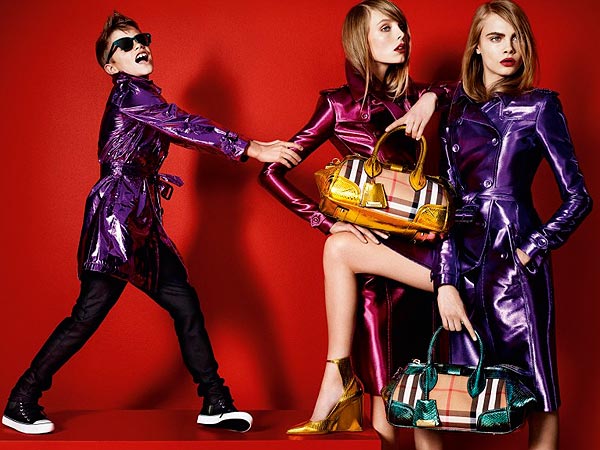But since then, a public feud between Mr. Depardieu and French officials has continued to simmer over Mr. Depardieu’s complaint a few days earlier about France’s high tax rates on the wealthy. French politicians and commentators have lambasted him for renouncing his French citizenship and registering as a resident of Néchin in Belgium, which has lower taxes. And on Thursday, the Kremlin announced that Mr. Putin had kept his promise and had signed a decree making Mr. Depardieu a citizen of Russia.
A spokesman for Mr. Putin, Dmitri Peskov, said that Mr. Depardieu had recently applied for citizenship, and that it was granted in honor of his cultural achievements.
“The thing is that Depardieu has been a part of large film projects and has acted many parts, including the part of Rasputin,” Mr. Peskov told the Interfax news agency. Referring to a television movie about the mad monk, he added, “This film has not been shown here, but it is a very bold and innovative interpretation of the character.”
In a letter to Russia’s Channel One television station, Mr. Depardieu confirmed that he applied for Russian citizenship and said he was “happy” the request was granted.
“I adore your country, Russia, your people, your history and your writers,” he wrote, adding that his father was a Communist who listened to Moscow radio. He promised to study Russian and said he wanted to live in a village because Moscow was too big of a city.
He said he had informed the French president, François Hollande, of his decision and also said, “I love your president, Vladimir Putin, very much and it’s mutual.”
It seemed likely, however, that Mr. Putin also saw a poetic opportunity in the chance for Russia, long known for losing wealthy citizens to the West, to claim one in return — and not just anyone, but a macho actor instantly recognizable by a giant nose that seems made for sniffing Bordeaux by the barrel.
That Mr. Depardieu might find Russia an attractive place in which to settle down, or at least to declare as his official tax address, fits in well with a narrative that Mr. Putin has developed in recent months portraying Russia not just as a geopolitical equal of Western powers, but as superior in many respects, especially in terms of its performance during the economic downturn.
“On the whole, we made a recovery from the crisis even faster than other countries,” Mr. Putin said. “Just look at the recession in Europe. Russia has posted growth, albeit a modest one, but we still have a much better situation than in the once-prosperous euro zone, or even in the United States.”
If Mr. Depardieu chooses to take up Russian citizenship, he would potentially trade steep French income tax rates, which he said now claim 85 percent of his income, and even Belgian rates of 60 percent or higher, for Russia’s flat 13 percent income tax. The value-added tax, a sales tax on goods and services, is 18 percent in Russia compared with nearly 20 percent in France, while Russian social security taxes are 30 percent compared with 50 percent in France.
But aside from tax savings, Mr. Putin suggested that French officials were too brusque in their response to Mr. Depardieu’s complaints and that he might find that Russians simply understand him better as an artist. “Actors, musicians and artists are people with a special, delicate psychological makeup and, as we say in Russia, the artist is easily offended,” Mr. Putin said at the news conference on Dec. 20. “So I understand Mr. Depardieu’s feelings.”
Mr. Putin at the time went out of his way to say that he meant no ill will toward the French. “Among our foreign partners, France stands out,” he said, prefacing his response to a reporter who asked if he had offered Mr. Depardieu residency. “We have had close spiritual ties for centuries now, despite tragic events in our common history.”
Mr. Putin also said that he regarded Mr. Depardieu as thoroughly French as Mr. Putin, a former K.G.B. agent, is Russian. “I must say that even though he said — and I read his statement — that he considers himself a European, a citizen of the world, I know for a fact that he considers himself a Frenchman,” Mr. Putin said. “I know this since we have very friendly, personal relations, even though we have not met many times. He loves his country, its history, its culture; that’s his life.”
Mr. Depardieu, it turns out, is no stranger to Russia. In October, he visited Grozny, the capital of the Russian republic of Chechnya, where he attended a celebration of the capital’s 194th anniversary with the Chechen leader, Ramzan Kadyrov, who has invited Mr. Depardieu to live there.
Video of the October event shows Mr. Depardieu exhorting an appreciative crowd in a mixture of Russian and French: “Glory to Grozny! Glory to Chechnya! Chechnya is strong! Glory to Kadyrov!”
Mr. Depardieu has also agreed to star in a movie written by Gulnara Karimova, the eldest daughter of President Islam Karimov of Uzbekistan, the former Soviet Republic.
A spokeswoman for the French government, Najat Vallaud-Belkacem, said Thursday that the decision to grant Mr. Depardieu a passport was “an exclusive prerogative of the head of the Russian state,” and declined to comment further, Europe 1 radio reported.










